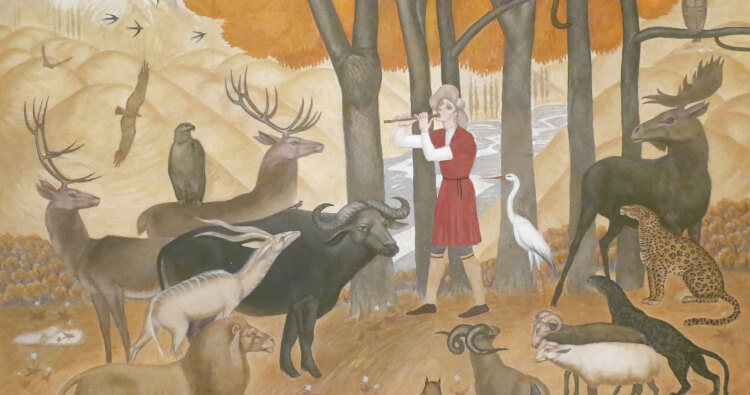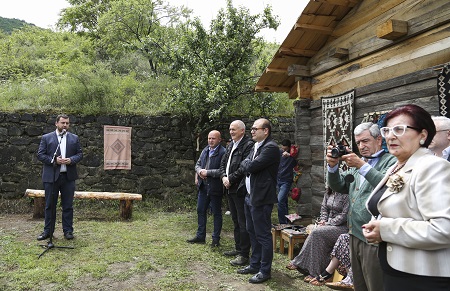Ancient Caucasian epos released by Georgian, Ossetian scholars as children's mythology

An illustration to 'Nart Sagas' by Oleg Basaev. Image via UNDP.
Georgian and Ossetian scholars have released a children's mythology collection celebrating their joint history and "unique heritage" in the Caucasus region, in an initiative supported by the United Nations Development Programme and the European Union.
The publication of Nart Sagas - along with Georgian-Ossetian and Ossetian-Georgian dictionaries and an encyclopaedic album detailing historical relations - is a result of a collaboration spanning the past nine years, the UNDP said.
Working with the Caucasian Mosaic civil society organisation, the EU and UNDP supported the researchers working on the project, with UNDP Head Louisa Vinton noting the importance of introducing "underappreciated" shared cultural heritage of the region to the young generations in her comments.
Understanding what was shared in the past can help overcome differences in the present and build foundations for cooperation in the future"
- UNDP Head Louisa Vinton
The Nart Sagas epos is a modern edition of the ancient literary work that has been illustrated by Georgian and Ossetian artists. It has already served as a basis for a theatre staging, with a cast of actors performing in a resulting production at the Shota Rustaveli Theatre and Film State University of Georgia in 2018.
Nart Sagas are to the Caucasus what Greek mythology is to Western civilization
- UNDP release on the project
It was unveiled along with updated editions of school dictionaries by linguists from the two communities - first released in 2012 with support from the EU and UNDP - as well as the encyclopaedic edition Georgian-Ossetian Relations that explores the subject through a focus on the time period between the ancient times through to the end of the 19th century.
Caucasian Mosaic Head Naira Bepiev called the project an "important scientific collaboration" and said she hoped to continue work to "preserve and popularize this unique heritage".
The publications have been developed and released as part of the EU and UNDP's Confidence Building Early Response Mechanism, which aims to involve civil society efforts for building confidence between communities divided by conflict.
 Tweet
Tweet  Share
Share


